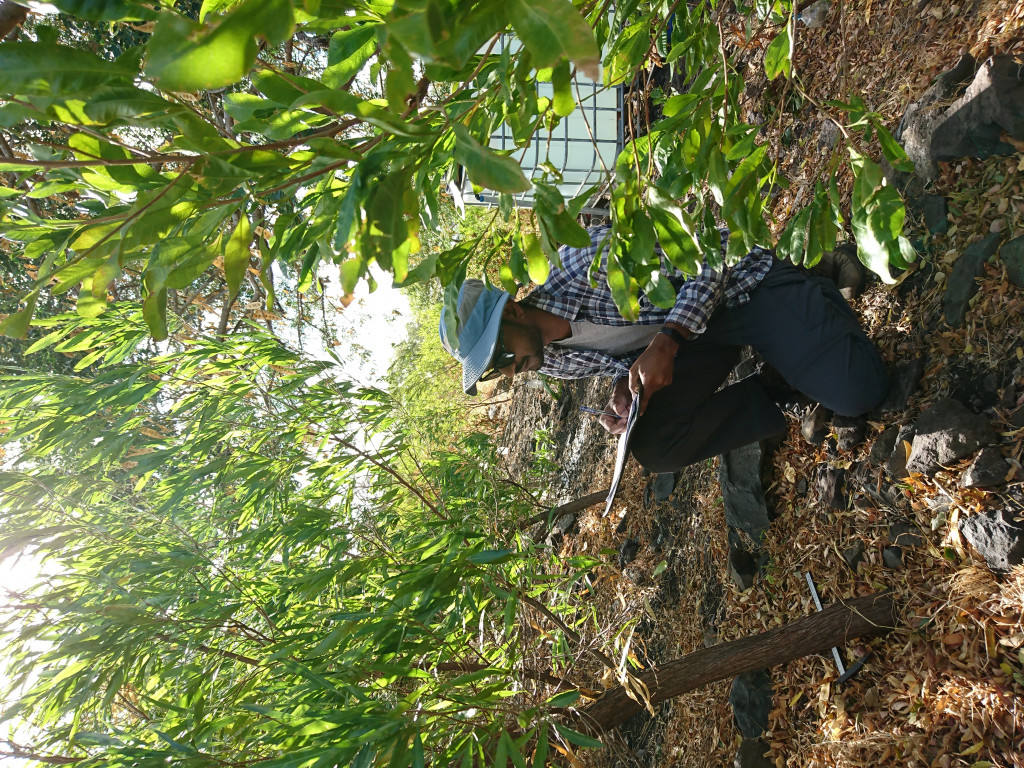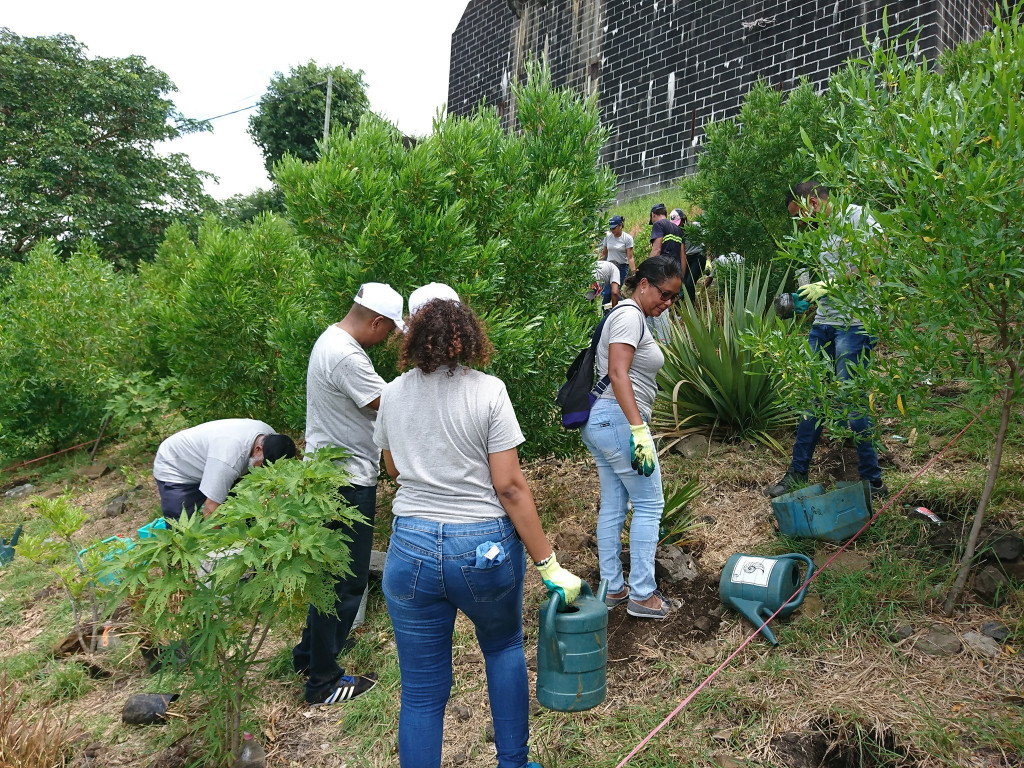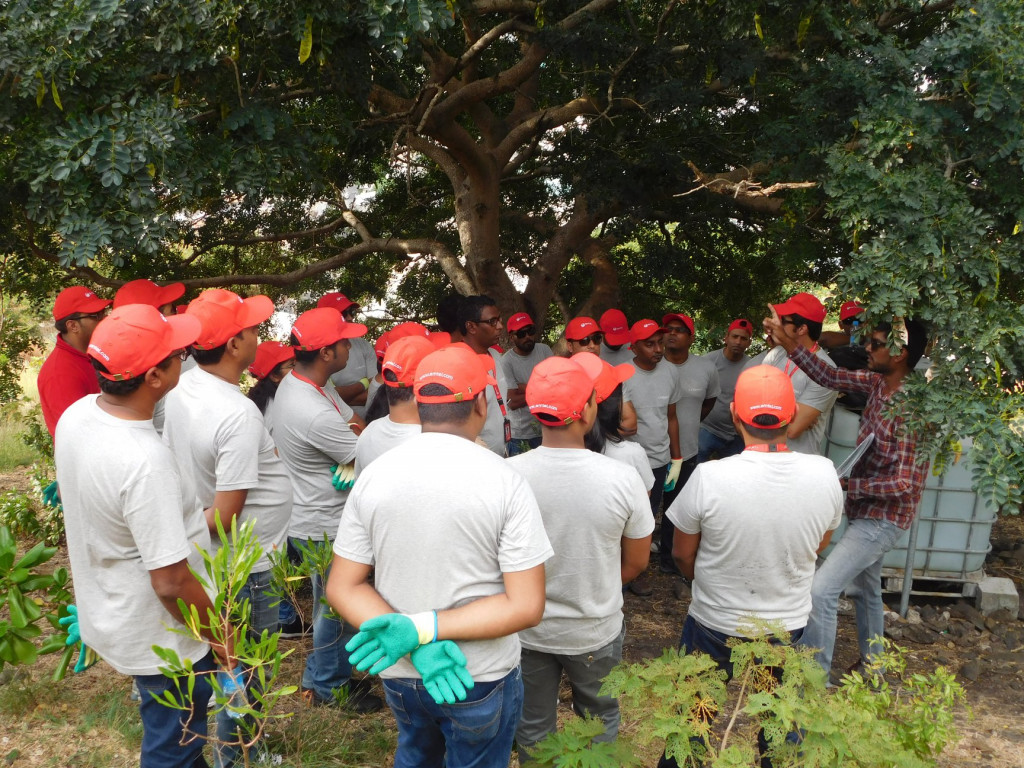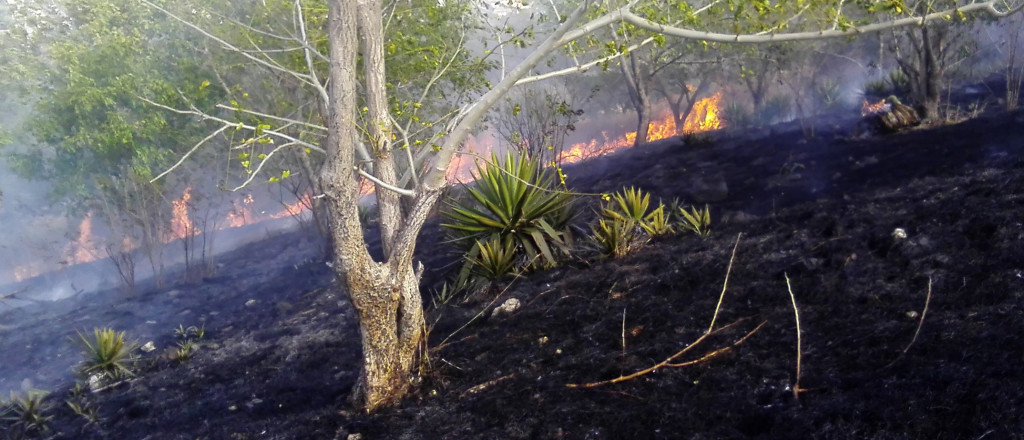Conservation Challenges on the Dodoland during the COVID-19 Pandemic
By Erwin Amavassee (DESMAN graduate
2019
 What a year it’s been!! 2020 was gearing
up to be the ‘year of nature’, but several global biodiversity and climate
conferences were put on hold because of the COVID-19 pandemic. For the first
time on a global scale, modern human activities were reduced to its lowest and
the word “anthropause” was coined by authors in an article published in Natural Ecology and Evolution to define
this phenomenon. Many countries have been under lockdown to contain the spread
of COVID-19. Dodoland (Mauritius) was no exception, starting from March 2020.
The lockdown prevented most conservationists in Mauritius, like myself, from
entering the field or offices. We were instead cooped up at home for 3 months.
What a year it’s been!! 2020 was gearing
up to be the ‘year of nature’, but several global biodiversity and climate
conferences were put on hold because of the COVID-19 pandemic. For the first
time on a global scale, modern human activities were reduced to its lowest and
the word “anthropause” was coined by authors in an article published in Natural Ecology and Evolution to define
this phenomenon. Many countries have been under lockdown to contain the spread
of COVID-19. Dodoland (Mauritius) was no exception, starting from March 2020.
The lockdown prevented most conservationists in Mauritius, like myself, from
entering the field or offices. We were instead cooped up at home for 3 months.
As the Project Coordinator of Friends of
the Environment (FoE), I manage and coordinate a small but high impact
ecological forest restoration project. I normally spend 3 to 4 days a week in
the field doing monitoring surveys, organising community-based volunteering
activities and supervising restoration activities among other related
fieldwork. The pandemic negatively affected our organisational activities. From
November to April, 60 % of our restoration activities are mainly focused on the
re-introduction of site-specific plant species on site through tree-planting
programmes with volunteers. Sadly, even before any COVID-19 cases were
officially confirmed in Mauritius, 45% of our volunteering activities were
cancelled when the fear and panic began to spread. At that time, a study by the
University of Southampton claimed that Mauritius is the 3rd country most at risk in the African region
and this caused more fear. As a result, we failed to achieve our planting
objectives on the fifth year of the project.
Photo above: Erwin carrying out tree
performance surveys


Photos above: volunteering activities with corporate groups just before lockdown began

Covid challenges
At first, it was a challenge to come to
terms with not being able to fully perform my role in the project, knowing that
our post-planting maintenance activities were completely hindered and no
regular site inspection or patrol could be carried out. We had another big fear
to worry about. During mid-May, we regularly face fire outbreaks of moderate
intensities and a single fire outbreak can easily reverse 5 years of intense
restoration work. Fortunately, essential security services were operating and I
was occasionally receiving updates with photographs from a watchman guarding
Fort Adelaïde – a 19th century
national heritage landmark situated next to the project restoration site.
Photo left: yearly wildfires caused by anthropogenic pressures and invasive
fire-prone grass
Applying adaptive management through the
visual aids greatly helped in initiating procedures to allow two staff members to
carry out firebreak maintenance on field with a special Work Access Permit
obtained from the Police forces. Within 4 days after maintenance, a fire
outbreak ravaged 5 hectares of the hill. Fortunately, our restoration site was
spared as the timely maintenance of firebreaks stopped the progression of fire
successfully. Upon resuming work in late May with a Work Access Permit, I found
out that three water reservoirs at the project site were vandalised and about
12 % of saplings had died in our nursery. A proper contingency plan was set-up
to address the situation appropriately, as a lack of water supply can result in
high mortality of planted saplings during the dry season.
For me, the lockdown was an opportunity
to focus on other tasks while “working from home” was gaining ground throughout
various sectors. The use of social media skyrocketed during the lockdown and I
had the opportunity to reach out to the public on how to contribute to a new
normal after lockdown through an outreach programme developed by a digital
platform “2 minutes for tomorrow”. In this short video, I was able to raise
awareness on the loss of biodiversity and emergence of zoonotic infectious
diseases, the need to support local conservation organisations, the urgency to
halt illegal dumping in ecologically sensitive areas such as caves and to
engage in sustainable agricultural practices. The video in Mauritian Creole
(with subtitles in French) is available from: https://www.facebook.com/2minutesmu/videos/286866575838830/
Reconnecting
The lockdown period was also a good time to bond with family and check up on
loved ones, colleagues, friends and community. Keeping in touch with friends
all around the world, including my supportive DESMAN 2019 classmates, gave
strength in knowing that we were all passing through this difficult period
together. While I was safely confined at home, Dhanu Munasinghe, Project
Manager in Singapore, was put on enforcement duties to make sure that people
are following the advisories in parks and nature reserves to prevent spread of
the COVID-19.
Over the years, non-governmental organisations have made significant
contributions to humanity. However, the COVID-19 has triggered a funding crisis
that many of us were anticipating and where it is expected to limit donors’
funding capacity and availability in future. As a relatively small
organisation, it was urgent to re-think our funding model and diversify our
income sources by accessing different types of funding schemes. Our project
success depends on ensuring financial sustainability especially for long-term
restoration activities and the ability to keep our dedicated staff members
employed. With this in mind, I made several funding applications and hope to
build new alliances in the upcoming months. Besides this, I’ll need to develop
a proper volunteer management system to double-up planting activities for the
next rainy season.
Amidst this crisis, COVID-19 offers an opportunity to re-think our
relationship with our planet. It is more important than ever that we keep
working toward a sustainable future. The world’s response to COVID-19
demonstrated the incredible capacity of humanity to come together in the face
of unprecedented and insurmountable challenges to adapt and take action at the
scale necessary. This is what we need to conserve biodiversity and tackle
climate change – even at an individual level.
Thankfully, with no new local cases, Mauritius was considered COVID-19-free
since June 2020. Reducing the risk of community transmission lies in our hands.
Keep safe. Wearing a mask is caring!